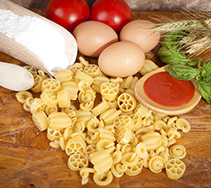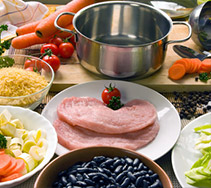People are always looking for easy fixes and fast results when it comes to losing weight. It seeems like every other month there’s a new fad diet that the news is reporting on: fat-free, sugar-free, low-carb, high-protein, gluten-free, juicing, gabbage soup, low-calorie, and the list goes on and on. I’m sure that if you’re reading this article, you’ve tried at least one of these diets. Sure, diets may work for a period of time. However, these are quick fix remedies to weight loss. Most likely, individuals doing these diets will stay on them for a few weeks, lose a few pounds, go back to eating poorly, and gain the weight back plus a few extra pounds. People are not learning the proper way to eat healthy and exercise daily in order to keep the weight off. Behavior modification is most important when wanting to lose weight, maintain healthy eating habits, and living a healthy lifestyle for the rest of your life.
Of course, it’s easy for me to give you the advice. The most diffficult part is to implement this advice into your life and change your current behaviors. There are several actions that need to take place in order for you to live a healthy life, lose weight, keep the weight off, and stay physically active. I have provided Weight Control Guidelines on our website. These Guidelines will help you to stay on track when trying to lose weight. These are not secrets to weight loss. This is information that most of you already know, however, you may not be implementing in your life.
The following list includes the most important guidelines to follow when trying to lose weight. Please remember, these are not quick weight-loss solutions. These are guidelines you should be following all the time for the rest of your life. When on the journey of losing weight, you should keep in mind that the weight should come off slowly. I recommend losing 1 to 2 pounds per week. Studies have shown that people that lose 1 to 2 pounds per week tend to keep that weight off permanently. Studies also show that people that go on crash diets lose weight, then go off the diet, and gain that weight back plus an extra 3 to 5 pounds. This is due to not changing their eating behaviors permenantly.
- Reduce your intake of processed food and refined sugars. Examples of these include: white bread, pasta, white rice, fast food such as McDonald’s, Panera Bread, and Taco Bell, cookies, cakes, snack foods such as pretzels, chips, and soda pop. These food products tend to be high in calories, trans fats, and sugar. Substitute these foods with whole grain and multi-grain products and increase your intake of a variety of vegetables.
- Portion control. Eat 6 small meals a day rather than 3 large meals a day. This will help to keep your metabolism higher. Three large meals a day can be higher in calories and makes it more difficult for your body to burn these calories up. Six small meals a day will keep your energy levels higher, keep you feeling less hungry, and will help you to reduce your caloric intake.
- Eat lean protein with every meal. Protein plays an important role in the development of muscle, hair, and nails. Studies have also shown that protein helps to keep people more satisfied and less hungry later in the day.
- When trying to lose weight/body fat, reduce your daily caloric intake by 500 calories. 3,500 calories equals one pound of fat. So if you can cut out 500 calories every day for 7 days, you can lose one pound in one week. This sticks with the recommendation of losing 1 to 2 pounds per week in order to keep that weight off for the rest of your life. One way of reducing your caloric intake is to cut out carbs such as pasta, breads, and rice at dinner time. Replace these with a variety of vegetables. Do not completely cut out complex carbohydrates from your diet. Complex carbohydrates are the body’s number one source for energy. You need these “good” carbs early in the day in order to perform your daily routine such as going to work or school, running the kids around town, and EXERCISE!
- Drink water throughout the day. Avoid soft drinks, soda pop, and juices. These are high in calories and sugar. Our bodies are 80% water. Water is important for healthy skin, proper physiological functions of the body, and, of course, keeping you hydrated for your workouts.
These 5 important guidelines are just a few of several tips that you should be following when it comes to proper daily nutrition. Please click here to learn more important nutritional information. Combining these weight control guidelines with daily physical activity and exercise will certainly help you to reduce your body weight and body fat. I understand that changing behavior is a very difficult thing to do. So start off slow. Try changing one thing in your eating habits. Accomplish that for 6 weeks and then add on another. Remember, these are lifestyle changes that will stay with you for the rest of your life. These changes will not only help you to lose weight but may help to decrease illnesses and diseases and prolong your life.





